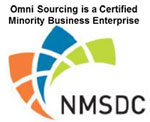Software testing methodologies and corresponding test strategies are linked and managed by the quality assurance organization. Software testing methodologies represent the different approaches and processes to ensure that a software application is fullytested. The methodology encompasses everything from unit testing individual modules, integration testing across business applications to specialized forms of testing such as security and performance. The test strategy is created for each project and pulls from the established test methodology to address the application requirements on a functional and non-functional perspective.
As software applications continue to become more complex with mobile applications, cloud infrastructure, disparate technology platforms and numerousoperating business devices, the need for a flexible test methodology emerges. An organization’s test methodology does not remain stagnant. The methodology will change based on the current maturity level of the QA organization, new application development processes and information technology direction.
Omni Sourcing utilizes the SEI Maturity Model to assist clients in ensuring the long-term success of testing in the Application Lifecycle Management (ALM) process. It provides for organizational focus on established test processes to ensure both the effectiveness and efficiency of an organization’s test methodology and strategy for consistency of project execution.
SEI Maturity Model

As software applications continue to become more complex with mobile applications, cloud infrastructure, disparate technology platforms and numerousoperating business devices, the need for a flexible test methodology emerges. An organization’s test methodology does not remain stagnant. The methodology will change based on the current maturity level of the QA organization, new application development processes and information technology direction.
Omni Sourcing utilizes the SEI Maturity Model to assist clients in ensuring the long-term success of testing in the Application Lifecycle Management (ALM) process. It provides for organizational focus on established test processes to ensure both the effectiveness and efficiency of an organization’s test methodology and strategy for consistency of project execution.



 We work with the Test Management Office (TMO) in developing a test strategy for how the client will approach testing the business applications and development lifecycle. The strategy will provide a high-level direction for testing applications with a framework detailing the processes to be followed during the testing cycles. Based on the specific application to be tested and corresponding business requirements, a test plan will be developed to define the approach to adequately test the application. The test plan will include test objectives, test frameworks, test design and test cases specific to the business application requirements.
We work with the Test Management Office (TMO) in developing a test strategy for how the client will approach testing the business applications and development lifecycle. The strategy will provide a high-level direction for testing applications with a framework detailing the processes to be followed during the testing cycles. Based on the specific application to be tested and corresponding business requirements, a test plan will be developed to define the approach to adequately test the application. The test plan will include test objectives, test frameworks, test design and test cases specific to the business application requirements. 